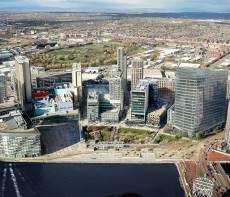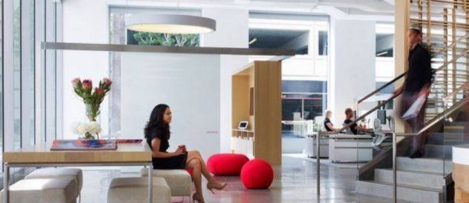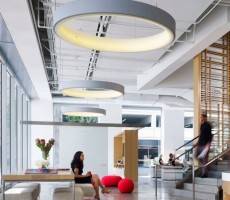June 10, 2016
Plans unveiled to double size of MediaCityUK over the next ten years 0
 MediaCityUK, best known as the new home of the BBC, is to double in size over the next decade under ambitious plans submitted to Salford City Council. Up to ten new buildings are envisaged with a development value of more than £1 billion. Key features of phase two of MediaCityUK include 50,000 m2 (540,000 sq ft) of offices, 1,800 apartments, retail and leisure, complemented by public spaces with a pedestrian promenade running through the scheme. Outline approval for the plans was granted in 2006. A condition of that permission was that detailed proposals, including all building designs and specifications, needed to be brought forward this year. The plans are expected to be considered by Salford’s planning panel in September. MediaCityUK is a joint venture between Peel Land and Property and Legal and General Capital, who share a long-term commitment to the further expansion of a creative and digital hub which already houses 250 businesses including the BBC, ITV, dock10, Ericsson and SIS.
MediaCityUK, best known as the new home of the BBC, is to double in size over the next decade under ambitious plans submitted to Salford City Council. Up to ten new buildings are envisaged with a development value of more than £1 billion. Key features of phase two of MediaCityUK include 50,000 m2 (540,000 sq ft) of offices, 1,800 apartments, retail and leisure, complemented by public spaces with a pedestrian promenade running through the scheme. Outline approval for the plans was granted in 2006. A condition of that permission was that detailed proposals, including all building designs and specifications, needed to be brought forward this year. The plans are expected to be considered by Salford’s planning panel in September. MediaCityUK is a joint venture between Peel Land and Property and Legal and General Capital, who share a long-term commitment to the further expansion of a creative and digital hub which already houses 250 businesses including the BBC, ITV, dock10, Ericsson and SIS.







































